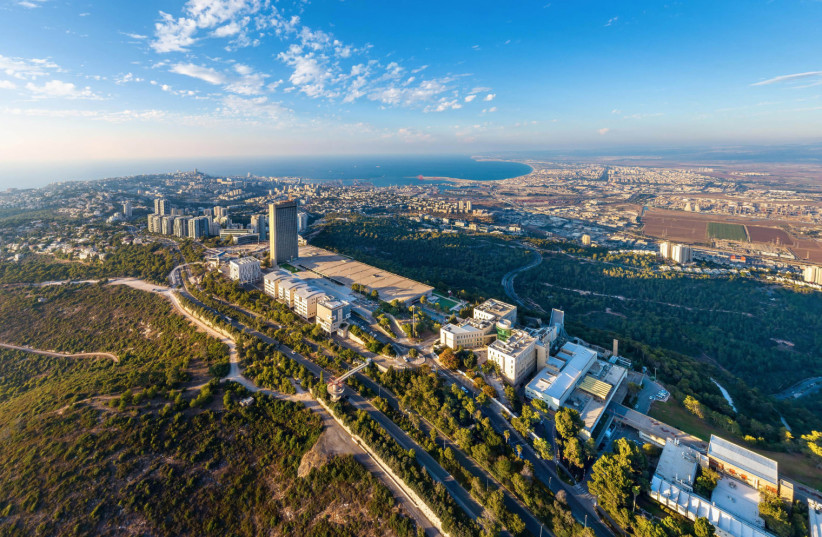A University of Haifa survey released Tuesday amid a conference on Politics and Arab Society found that 68% of Israeli Arabs at least somewhat approve of the inclusion of Arabic political parties in Israel’s governing coalitions.
The survey, conducted in the midst of Israel’s largest wave of terrorism in recent memory, found that 21% of Arab respondents said they were "extremely supportive" of an Arab party’s membership in the Israeli coalition government – while 23% said they were "very supportive" and 24% said they were "somewhat supportive."
The survey, conducted by Dr. Doron Navot from the University of Haifa’s School of Political Science in February 2022, questioned 701 respondents from Israel’s largest Arab population centers.
"The Arab public is tired of sitting on the sidelines of politics, and wants to exert influence from within the coalition," said University of Haifa faculty member Dr. Muhammad Khalaila. "However, there are still many within the Arab sector who do not think that the United Arab List has any significant achievements to its credit."
While 32% of respondents said they were not supportive of the inclusion of Arab parties in the Israeli government, 55% said that conditions for Israeli Arabs have improved during the past year (14% who strongly agree, 17% who agree, and 24% who somewhat agree), while a staggering 67% of Israeli Arabs surveyed said they are optimistic about conditions improving in the future (16% who are highly optimistic, 20% who are optimistic, and 31% who are somewhat optimistic).
![AHMAD TIBI: When he [Netanyahu] says ‘Ahmad Tibi,’ he means Ahmad the Arab.](https://images.jpost.com/image/upload/f_auto,fl_lossy/t_JD_ArticleMainImageFaceDetect/454472)
Israel’s recently-formed 36th coalition government became the first in the country’s history to include a member from an Arab party when Ra’am’s Mansour Abbas helped Naftali Bennett and Yair Lapid reach the required 61 Knesset seats required to form a majority government.
While Abbas became the first Arab-Israeli politician to be a part of a majority government, Ta’al party leader and long-time Israeli-Arab politician Ahmad Tibi is seen as the politician who most effectively promotes the interests of the Israeli Arab population. 25% of respondents chose Tibi, while 21% chose Abbas.
"The mainstream Arab public understands that we can’t only talk to ourselves. We must also speak to others outside of our community," said Abbas at the opening session of the University of Haifa conference – where the survey results were announced.
Abbas said that while the findings reflect the Arab public’s sentiment that right-wing politicians delegitimize the Arab party’s presence in the governing coalition, he was also optimistic about the Jewish public’s views surrounding the diversity of Israel’s current government.
"The very same Israeli public that did not agree to share a government with the United Arab List about a year ago is now our partner… there is growing support among the Jewish population for Arab participation in government," declared Abbas. "Every day, I meet people who wear a kippah — traditional and ultra-Orthodox Jews, and some who identify as Likud voters — who understand and accept our involvement."
The University of Haifa has a large Arab presence on campus, as 32% of the student body is Arab and the University runs various initiatives that proactively foster coexistence.

"Although the new survey findings indicate that the journey from Arab participation in the governing coalition to greater Jewish-Arab harmony in Israeli society is not complete, forums like the University of Haifa’s Conference on Politics and Arab Society bring coexistence-related issues to the fore in an engaging, constructive format that makes crucial contributions to social progress and to peace," Lisa J. Silverman, CEO of American Society of the University of Haifa, concluded.
